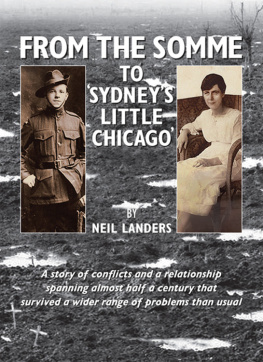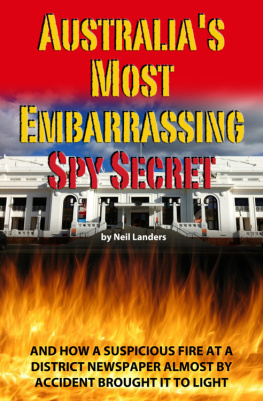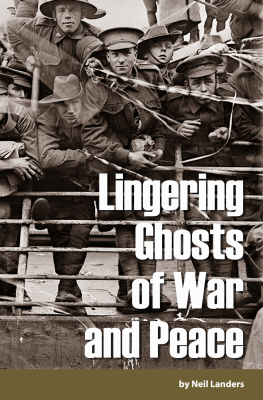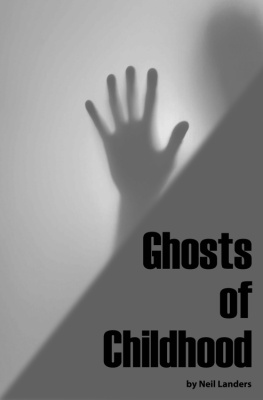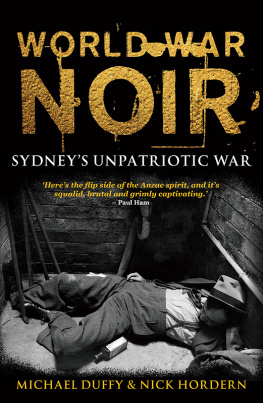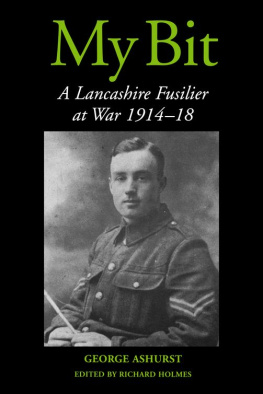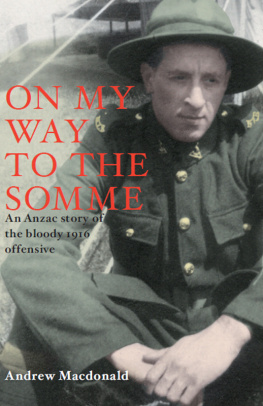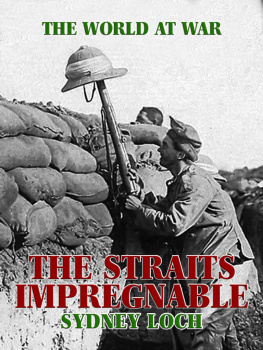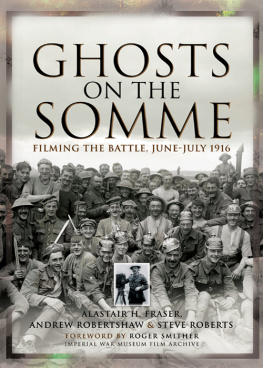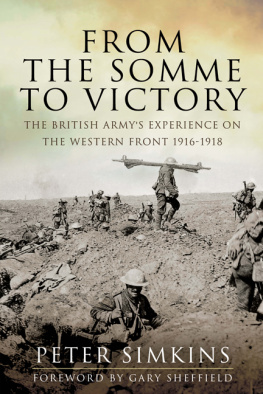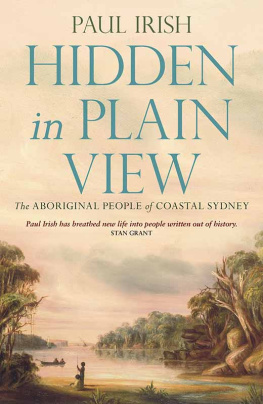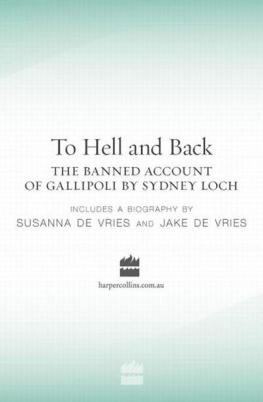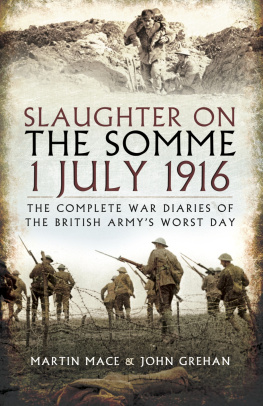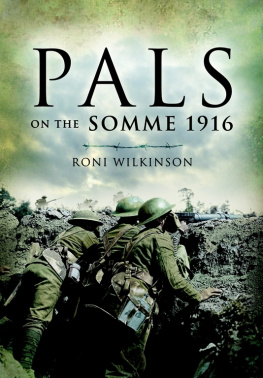Landers - From the Somme to Sydneys Little Chicago
Here you can read online Landers - From the Somme to Sydneys Little Chicago full text of the book (entire story) in english for free. Download pdf and epub, get meaning, cover and reviews about this ebook. publisher: Books Unleashed, genre: Detective and thriller. Description of the work, (preface) as well as reviews are available. Best literature library LitArk.com created for fans of good reading and offers a wide selection of genres:
Romance novel
Science fiction
Adventure
Detective
Science
History
Home and family
Prose
Art
Politics
Computer
Non-fiction
Religion
Business
Children
Humor
Choose a favorite category and find really read worthwhile books. Enjoy immersion in the world of imagination, feel the emotions of the characters or learn something new for yourself, make an fascinating discovery.
- Book:From the Somme to Sydneys Little Chicago
- Author:
- Publisher:Books Unleashed
- Genre:
- Rating:3 / 5
- Favourites:Add to favourites
- Your mark:
- 60
- 1
- 2
- 3
- 4
- 5
From the Somme to Sydneys Little Chicago: summary, description and annotation
We offer to read an annotation, description, summary or preface (depends on what the author of the book "From the Somme to Sydneys Little Chicago" wrote himself). If you haven't found the necessary information about the book — write in the comments, we will try to find it.
From the Somme to Sydneys Little Chicago — read online for free the complete book (whole text) full work
Below is the text of the book, divided by pages. System saving the place of the last page read, allows you to conveniently read the book "From the Somme to Sydneys Little Chicago" online for free, without having to search again every time where you left off. Put a bookmark, and you can go to the page where you finished reading at any time.
Font size:
Interval:
Bookmark:
From the Somme to 'Sydney's Little Chicago'
Published by Books Unleashed at Smashwords
Copyright 2014 Neil Landers
The author retired in 2013 after 57 years in journalism. More than 30 of the last of those were spent as a sub-editor at the national daily, The Australian.
The front cover shows his future father George in France in mid-1916 just before the start of the Battle of the Somme. At the other side is his future mother Olive back in Australia awaiting his next letter. In the background is part of the Somme battlefield when George left it on a hospital train in late 1916.
All rights reserved. No part of this book may be reproduced or transmitted by any person or entity, including internet search engines or retailers, in any form or by any means, electronic or mechanical, including photocopying (except under the statutory exceptions provisions of the Australian Copyright Act 1968), recording, scanning or by any information storage and retrieval system without the prior written permission of the copyright owner.
The fact that this book is published online does not mean that any part of it can be reproduced without first obtaining written permission: copyright laws do still apply. Inquiries should be directed to the author.
The author asserts his/her moral right to be identified as the author of this book.
From the Somme
to
'Sydney's
Little Chicago'
Table of Contents
CHAPTER ONE
Many Questions
A
long a street of bungalows, most in the Californian style that became popular in the early 1920s, the only light was that of the moon shining on red-tiled roofs. Only the occasional distant barking of a dog broke the silence. The main fighting in the war had moved out far into the Pacific, northwards towards Japan. No planes returning late from patrols over the ocean descended towards the airfield to the west.
In front of the bungalows were neatly trimmed rose bushes alongside sub-tropical shrubs, and poplars or maples next to wattles or palms. Behind some were paddocks with livestock and scattered eucalypts. Green ferns, shaded and moist, hung in porches. For a street and a suburb both named after Sir Joseph Banks, the botanist who had sailed out to the Antipodes with Captain Cook, and whose report to the British government had led to the selection of Botany Bay as a suitable place for a penal colony, the botanical diversity was fitting.
The early-morning peace ended as a large American car turned into the street and started honking outside the first home on the left. The front of the home was partly hidden behind a big hydrangea bush, fat with clusters of blue flowers. At a front window a light came on. A door of the car opened and a tall, heavily-built man dragged out a smaller man. With some difficulty, he managed to get him onto the front lawn between two Canary Island palms. Then he returned to the car and drove off.
A small woman emerged from the house pulling a dressing gown around her and peering with puzzlement at the disappearing car. Her face was still youthfully attractive but her slim body was starting to fill out as she entered middle age. Seeing the man on the front lawn, she moved quickly to him. Alarm changed to annoyance as she turned him over and smelled the alcohol on his breath. With much more difficulty than the driver of the car, she was able to drag him across the front lawn and a porch and into the front bedroom. There she managed to manoeuvre him, as he became conscious, onto a double bed, where she began to remove his shoes.
In the doorway stood a small boy who had been awakened also by the honking. Still rubbing sleep from his eyes, he watched unobserved until he was noticed and ordered back to bed. Soon afterwards the light in the bedroom went out and the peace of the night returned to Sir Joseph Banks Street.
The boy who stood in the doorway was me. Something, I knew, had been happening. In recent nights my father had been shutting himself almost until dawn in the living room at the front, across a hall from the bedroom, with his radiogram and well-stocked drinks cabinet. After a few hours of increasingly loud music from his large collection of 78rpm records his voice had sometimes begun to drift out also, ever more drunkenly and loudly. The songs, I later learned, were mostly marching songs during World War I on the Western Front, where in late 1916 he had been caught by a shell that probably contained experimental mustard gas.
During day-time visits by relatives of my mother there had been worried discussions. Sometimes there had been references to a tin shed. Why was a tin shed so important? We had a big tin shed in our backyard and that did not seem important. What was the federal parliament? Who was Ray Fitzpatrick? Small boys have more important matters to worry about than the strange world of adults. But the questions remained in the back of my mind.
As I became older and learned the answers to some they led to others.
Fitzpatrick, the man who dragged my father onto the front lawn on that morning in 1944, was one of his accountancy clients. Did he really illegally take a 160ft long steel-girder-supported aircraft hangar, valued during allegations in parliament at up to 4,000, from a heavily guarded base of the US and Australian air forces in 1943? That was the tin shed to which my relatives had sarcastically been referring. Fitzpatrick had then erected it on the outskirts of Bankstown shopping centre to house his trucks. He passed it off as a workshop worth 100 and so did the local council, allegedly after official approval for such a building from the Department of War Organisation of Industry. Some other parliamentary allegations were more serious.
Did Fitzpatrick really control an empire of crime and corruption extending into the state and federal governments, as I read in 1955 in one newspaper? If so, how deeply involved had my father been with him and why? The reason did not seem to be personal gain. Despite frequently working long hours he often struggled at home to make ends meet until about 1950.
I knew from soon after World War II that my father had done accountancy work for Fitzpatrick that was not to be seen by tax collectors. Lots. In our backyard shed was a darkroom with photographic equipment and shelves which extended almost to the ceiling. Out of sight on the top shelf were many folders with dates from the mid-1930s to 1944 and the name Fitzpatrick on the front.
Near the end of the war the taxation department was able to extract from Fitzpatrick the then very large sum of 62,000 in back taxes. But he continued to go about his business in much the same way as he always had.
At breakfast or dinner during and after the war my parents sometimes talked about Ray Fitzpatrick. There were also many other people they talked about, often more frequently. Two of those were accountancy clients who in later years were to attract more public attention than Fitzpatrick. One was Fitzpatricks main local trucking rival, Stan Fox, who near 1970 became Australias then biggest-ever racehorse owner. The other started the H.G. Palmer retail chain, from which many Australians bought their first refrigerators, washing machines and TV sets.
Another person my parents talked about was Charles Morgan, a lawyer turned politician with whom my father was connected in the building society movement. Morgan made most of the 1944 allegations in parliament.
Other questions concerned a newspaper war in the early 1950s. On one side was the successful weekly Bankstown Torch, which was anti-Labor and made or reported many allegations about Fitzpatrick during the early 1950s. The allegations led to the Labor state government in 1954 sacking the Labor-dominated Bankstown Council and appointing an administrator.
The Torch was published by a family who lived up the street from us and I had reason to believe my anti-Labor mother was helping them. On the other side was the weekly pro-Labor Bankstown Observer, which my pro-Labor father had helped to start in 1950. That war culminated in a mysterious explosion on Easter Monday 1955 that sent the Torch premises up in flames and led to newspaper stories around Australia about Sydneys Little Chicago. On June 10, 1955 Fitzpatrick and a muckraking journalist he had hired to run the Observer became, for contempt of parliament in a story published in the newspaper, the only two people ever jailed by the Australian Parliament. The Privy Council in London, after a preliminary hearing, refused to hear a full appeal by Fitzpatrick.
Next pageFont size:
Interval:
Bookmark:
Similar books «From the Somme to Sydneys Little Chicago»
Look at similar books to From the Somme to Sydneys Little Chicago. We have selected literature similar in name and meaning in the hope of providing readers with more options to find new, interesting, not yet read works.
Discussion, reviews of the book From the Somme to Sydneys Little Chicago and just readers' own opinions. Leave your comments, write what you think about the work, its meaning or the main characters. Specify what exactly you liked and what you didn't like, and why you think so.

